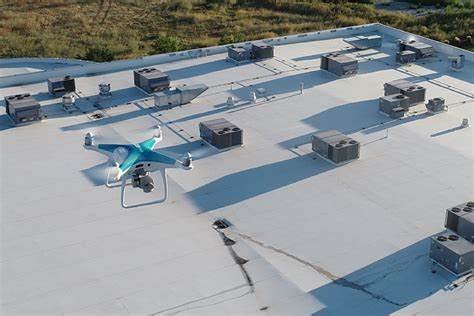How to Transition into Specialized Roofing Roles
The roofing industry offers a wide range of career paths, but one of the most effective ways to advance your career is by transitioning into a specialized role. Whether you're interested in green roofing, solar installations, or historical restoration, focusing on a niche area can not only make your job more fulfilling but also increase your earning potential. Here’s how you can make the transition from general roofing work to a specialized role.
Why Specialize?
Specializing in a particular type of roofing work allows you to become an expert in a high-demand area. As the industry evolves, certain niches, like green and solar roofing, are growing rapidly due to the push for sustainability. Similarly, historical restoration requires a deep understanding of traditional materials and methods, making it a lucrative field for those with the right skills.
Identify Your Niche
The first step in transitioning to a specialized role is to identify which area interests you the most. Here are a few options:
Green Roofing: Focuses on the installation and maintenance of vegetative roofs. This area requires knowledge of plant types, soil layers, and drainage systems.
Solar Roofing: Involves installing solar panels as part of a roofing system. Understanding photovoltaic systems, wiring, and energy storage is crucial.
Historical Restoration: This niche requires familiarity with older roofing materials like slate or clay tiles and traditional construction techniques. It’s ideal for those who appreciate preserving historical architecture.
Upskilling and Certifications
Once you’ve identified your niche, the next step is to acquire the necessary skills and certifications. This might involve taking courses specific to your chosen specialty:
Green Roofing: Consider certifications from organizations like Green Roofs for Healthy Cities (GRHC) that offer specialized training programs.
Solar Roofing: Look into certifications from the North American Board of Certified Energy Practitioners (NABCEP) for solar installation.
Historical Restoration: Engage in workshops or courses offered by preservation organizations, and consider becoming certified in historical building conservation.
Gain Hands-On Experience
Transitioning to a specialized role requires hands-on experience. Start by taking on small projects within your chosen niche. For example, if you’re interested in solar roofing, volunteer to assist on solar installation projects. This experience will not only build your skills but also make you more attractive to potential employers.
Networking and Mentorship
Networking is essential when transitioning to a specialized role. Attend industry conferences, join professional organizations, and connect with experts in your chosen field. Finding a mentor who is already established in the niche can provide invaluable guidance and help you navigate the challenges of your new role.
Market Your New Skills
Once you’ve gained the necessary skills and experience, it’s important to market yourself effectively. Update your resume to highlight your specialized training and experience. Use your professional network to let people know you’re available for specialized roles. Consider building a portfolio of your work that showcases your expertise in your chosen area.
Transitioning into a specialized roofing role can open up new opportunities and set you apart in a competitive industry. By identifying your niche, upskilling, gaining hands-on experience, and effectively marketing yourself, you can successfully make the shift and advance your career in the roofing industry.




